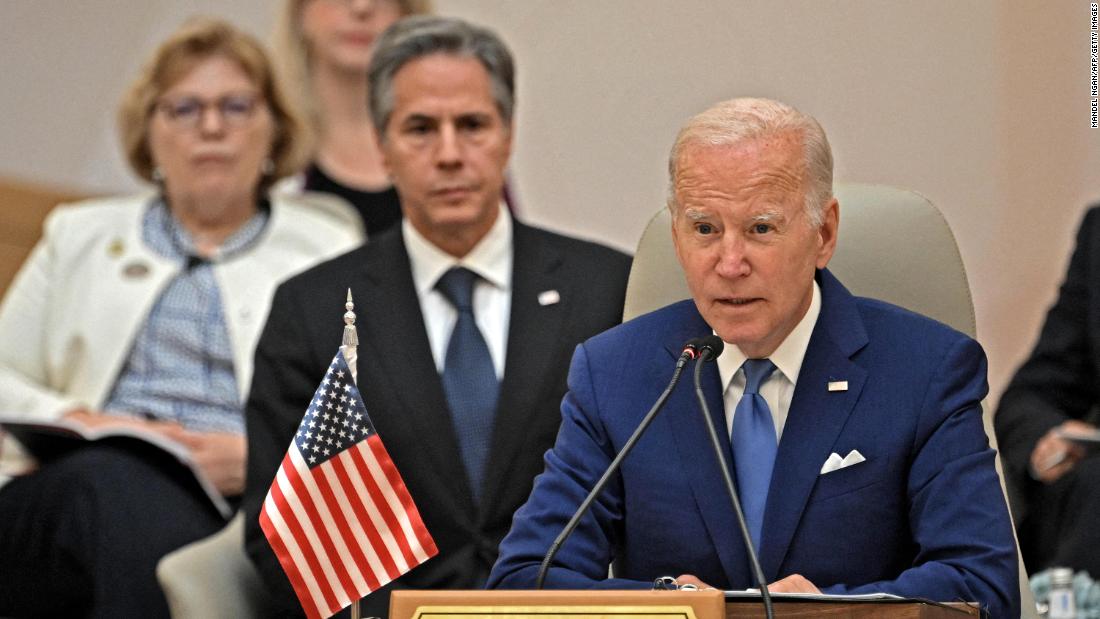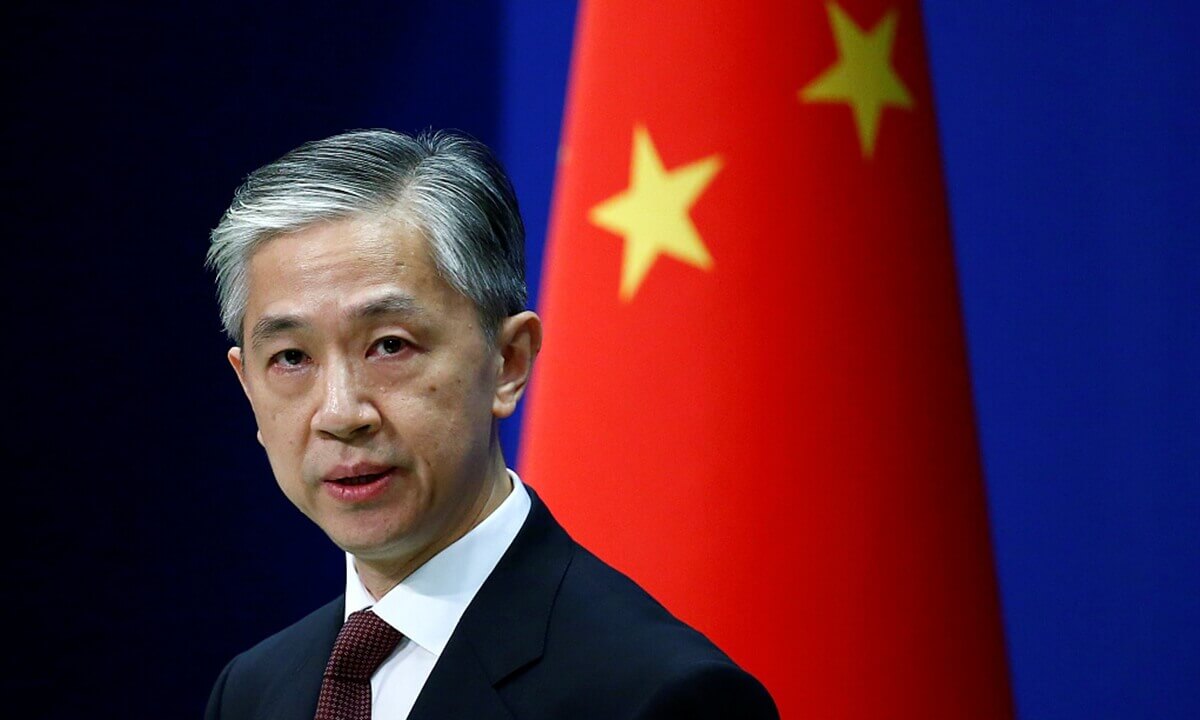South Asia
Chinese foreign ministry spokesperson Wang Wenbin said that “positive progress” had been made to facilitate and expedite the return of Indian students to China. He also said that the resumption of direct flights between India and China was “conducive” and expressed hope that India would also work with its Chinese counterparts for their early resumption. [FMPRC]
Hours before acting Sri Lankan President Ranil Wickremesinghe declared an emergency citing concerns for public security and public order, he blamed the Russia-Ukraine war for straining global food supply chains and subsequently causing food shortages and inflation in Sri Lanka. He admitted that while the issues were partly self-made, external events have further strained the country and caused around 6 million people facing the threat of malnutrition. [Colombo Page]
Central Asia and the Caucasus
Armenian Foreign Minister Ararat Mirzoyan met with his Azerbaijani counterpart Jeyhun Bayramov in Georgia on Saturday for the first time since the 2020 Nagorno-Karabakh war. The Armenian foreign ministry stated that the pair discussed a “wide range of issues regarding the normalisation of relations.” They agreed to implement previously agreed commitments and take “further possible steps.” [Armenian Foreign Ministry]
Armenian President Vahagn Khachaturyan appointed Gen. Edward Asrian as the new army chief on Friday, filling a post that has been vacant for almost five months. Asrian’s predecessor, Gen. Artak Davtian, and other high-ranking officers were sacked in February after they issued a statement accusing Pashinyan’s government of incompetence and misrule. [RFE/RL]
East and Southeast Asia
Indonesia has rescinded its export ban on its palm oil products until August 31 in an attempt to boost exports and ease producers’ high inventory woes, its finance ministry announced on Saturday. The country’s palm oil producers have been struggling with high inventories since the government imposed a three-week export ban to lower domestic cooking oil prices. [Reuters]
In its closing remarks on Sunday, this year’s G20 host, Indonesia, said that several members had condemned Russia for its war on Ukraine, as the “recovery of the global economy has slowed and is facing a major setback.” It added that members “agreed that there is an alarming increase of food and energy insecurity” and “called for an end to the war.” [Taipei Times]
Europe
On Sunday, Ukrainian President Volodymyr Zelensky fired the head of the security service, Ivan Bakanov, and Prosecutor General Iryna Venediktova over communications with Russia. “Such an array of crimes against the foundations of the national security of the state and the connections detected between the employees of the security forces of Ukraine and the special services of Russia pose very serious questions to the relevant leadership,” he stated, adding, “The specific actions and any inaction of each official in the security sector and in law enforcement agencies will be evaluated.” Zelensky also announced that about 651 cases regarding treason have been filed. [President of Ukraine]
Germany’s energy regulator, the Federal Network Agency, warned of gas shortages for the coming two winters amid a looming threat of Russia cutting off supplies to Europe. However, it reassured that supplies from Norway, the Netherlands, and Belgium could help overcome the shortages. [Politico]
Over a hundred mayors of Italian cities, along with business organisations and workers’ unions, have urged Prime Minister Mario Draghi to reconsider his decision to resign after he lost the support of key coalition ally 5-Star Movement. In an open letter, they expressed “incredulity and concern” about inciting political turmoil while the country is already reeling from the impact of the Russia-Ukraine war and the COVID-19 pandemic. [Euronews]
Latin America and the Caribbean
In a statement on Friday, Argentina’s Foreign Ministry insisted that a China-Uruguay Free Trade Agreement must not be finalised “without the participation of Mercosur (The Southern Common Market),” citing the bloc’s rules, which ban individual members from holding unilateral talks with other countries or blocs. Argentine Foreign Affairs Committee Chairman Eduardo Valdés alleged that China was attempting to break up Mercosur with such a deal, stating that “on the part of Lacalle Pou of Uruguay, it hurts me, but the fact that China is finalising it hurts me even more.” [Merco Press]
Mexican authorities on Saturday confirmed the initiation of the extradition process for drug lord Rafael Caro Quintero to the United States for crimes including the murder of DEA agent Enrique “Kiki” Camarena in 1985. The drug trafficker was one of the founders of the Guadalajara Cartel, accused of illicitly supplying heroin, cocaine, and marijuana to the US during the 1970s and 1980s. The US government now has 60 days to file a formal extradition request and provide evidence to support the allegations. [Associated Press]
On Friday, Peru’s National Assembly voted to host the Organization of American States (OAS) General Assembly, reversing lawmakers’ initial rejection of the summit over requests for providing gender-neutral bathrooms. Foreign Minister Cesar Landa had condemned the earlier vote, claiming that it “gravely affects Peru’s international image,” a sentiment echoed by OAS Secretary-General Luis Almagro, who thanked Landa for his government’s efforts to host the summit. Government offices in Peru do not normally offer gender-neutral bathrooms, with the parliament dominated by socially conservative lawmakers. [Reuters]

Middle East and North Africa (MENA)
Egyptian President Abdel Fattah El Sisi met with his American counterpart Joe Biden at the sidelines of the Gulf Cooperation Council (GCC) summit in Jeddah on Saturday. Biden noted that Egypt has a “pivotal role” in the region and thus vowed to strengthen bilateral “strategic cooperation.” They discussed ways to improve Egypt’s food security, revive the Israel-Palestine peace process, and tensions with Ethiopia over the Nile Dam. [Egyptian Presidency]
On Saturday, Iran imposed sanctions on 61 Americans, including former Secretary of State Mike Pompeo, former National Security Advisor John Bolton, and former Presidential advisor Rudy Giuliani, for backing Iranian dissident group Mujahedeen Khalq Organization (MKO). Tehran accused the United States of “facilitating and encouraging terrorist acts.” [Iranian Foreign Ministry]
North America
While speaking at the Gulf Cooperation Council summit in Jeddah on Saturday, United States (US) President Joe Biden vowed that the US “will not walk away and leave a vacuum to be filled by China, Russia or Iran,” adding that Washington “is not going anywhere.” He also pledged $1 billion to fight food insecurity in the Middle East and said Gulf leaders had agreed to ensure “adequate supplies” of oil and gas to meet global demand. [ABC News]
On Sunday, a crowd of about 150 gathered at Parliament Hill to protest Canada’s decision to return the Russian gas turbine for the Nord Stream 1 pipeline, calling on Ottawa to be “brave like Ukraine” and uphold the sanctions levied on Russia. Organised by the Ottawa chapter of the Ukrainian Canadian Congress, the protestors urged the Trudeau administration to “stand with Ukraine.” Meanwhile, a Foreign Affairs Committee has summoned Foreign Affairs Minister Mélanie Joly and Natural Resources Minister Jonathan Wilkinson to discuss the turbine decision, wherein the Ukrainian Canadian Congress; the ambassadors of Ukraine, Germany and the European Union to Canada will be in attendance as well. [CTV News]
Oceania
Australian Prime Minister (PM) Anthony Albanese is holding a national cabinet meeting with state leaders today to discuss the country’s evolving COVID-19 situation after several leaders raised concern over rising new cases and suggested re-introducing federal aid programmes. However, Minister for Families and Social Services Amanda Rishworth has said the government will have “no money to be able to extend that.” [The Guardian]
A quarterly Consumer Price Index report released by Stats NZ on Monday showed that inflation in New Zealand this quarter reached 7.3%, the country’s highest increase since 1990. The largest drivers of the increase are said to be rising rents, construction costs, and transportation. [NZ Herald]
Sub-Saharan Africa
On Sunday, the World Health Organisation (WHO) declared a Marburg virus outbreak in Ghana after the Ghana Health Services (GHS) confirmed that two people who later died tested positive for the virus. There have been a dozen major outbreaks of Marburg since 1967, mostly concentrated in southern and eastern Africa, with Guinea reporting the first major outbreak in west Africa last year. Fatality rates range between 24% and 88%. WHO Regional Director for Africa Matshidiso Moeti has warned that “without immediate and decisive action (by Ghanian health authorities), Marburg can easily get out of hand.” [Reuters]
On Saturday, the European Union (EU) deployed 48 long-term observers for Kenya’s upcoming general elections scheduled for August. The delegation has been deployed under the EU Election Observation Mission (EOM) and includes an election technology analyst as well as a team of social media analysts. The mission “will remain in Kenya until the completion of the electoral process, including in case of a second round of presidential elections, and any complaints and appeals processes,” noted EU EOM Chief Observer Ivan Štefanec. It will also publish a report on election malpractices, complaints and petitions, and incidents of violence and intimidation during polling. [Nation]

